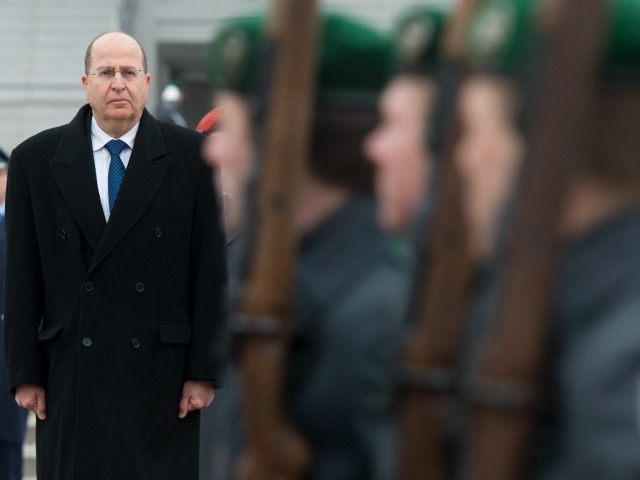TEL AVIV — Israeli Defense Minister Moshe Ya’alon criticized the Iran nuclear deal on Monday, saying it will pave the way for Iranian dominance of the Middle East, and slammed President Barack Obama’s mishandling of the Israeli-Palestinian conflict.
Ya’alon paid lip service to Obama’s support for Israel on the issue of security, but blamed the president for not holding Palestinian President Mahmoud Abbas responsible for his role in the impasse in peace negotiations. He also accused Obama of buying into the notion that the Israeli-Palestinian conflict is at the core of the Middle East’s problems.
“We still hear that the core of instability in the Middle East is the Israeli-Palestinian conflict and that without solving it you can’t stabilize the Middle East,” he said. “It was ridiculous in the past and it is ridiculous today. What is the linkage between the uprising in Tunisia and the Israeli-Palestinian conflict?”
The defense minister also said that the lifting of sanctions on Iran, which released more than $100 billion in frozen assets, would only delay Iranian nuclear aspirations and not put a stop to them.
Ya’alon said that the next 10-15 years are critical, since Tehran has created a “radical axis” throughout the Middle East in order to gain regional hegemony.
“The regime in Tehran has become a central party in order to solve the problems of the Middle East,” he said to an audience at the Woodrow Wilson International Center for Scholars in Washington.
Ya’alon met with U.S. Defense Secretary Ashton Carter and other senior officials on Monday afternoon to discuss military aid to Israel for the next 10 years. The Times of Israel reported that the negotiations were at an impasse due to Iran’s activities in the area, which include Tehran’s test-firing of ballistic missiles last week that carried a Hebrew message saying, “Israel must be wiped out.”
Ya’alon said that Israel believes Iran is now “more confident, more free to act in the region today with more money as a result of the sanctions relief, violating many UN resolutions, international resolutions regarding the proliferation of arms and terror.”
The defense minister told former Middle East peace negotiator Aaron David Miller, a vice president at the Wilson Center who moderated the forum, that he was concerned Obama would allow Iran to thwart international attempts to alleviate the situation in Syria, “leav[ing] us with an Iranian-dominated Syria. We can’t agree with it.”
Ya’alon stressed the differences between the Obama administration and Jerusalem over Israel’s conflict with the Palestinians, saying that Obama did not apply enough pressure on Abbas.
“When [Abbas] closed the door in front of both Secretary Kerry in February 2014 and President Obama in March 2014, he wasn’t blamed. Why? He’s too weak to be accountable,” he said, referring to the president’s offer of the principles for a plan to resolve the conflict and achieve a two-state outcome. “The most important value that is missing in the Middle East is accountability. When [Abbas] closed the door in front of President Obama, he should have been blamed. He should be accountable.”
In a recent interview in The Atlantic, Jeffrey Goldberg asked Obama about his 2009 Cairo reset speech.
“My argument [in the speech] was this: Let’s all stop pretending that the cause of the Middle East’s problems is Israel,” Obama told Goldberg.
Knesset member Michael Oren, who was Israel’s ambassador to the U.S. at the time the speech was given, said that the speech did exactly the opposite of what the president claims. Oren stated that it “nowhere mentions that the Israeli-Palestinian issue is not the core of the Middle East’s other conflicts. It actually implied the opposite.”
Ya’alon said on Monday that Israel doesn’t “want to govern the Palestinians” and it would be “happy for them to enjoy their own political independence.” However, the defense minister offered a bleak outlook of the moribund peace process, saying, “it’s not going to be solved in my lifetime.”

COMMENTS
Please let us know if you're having issues with commenting.